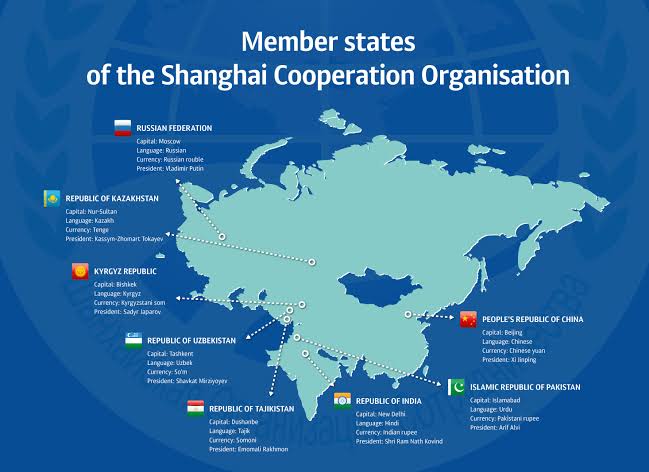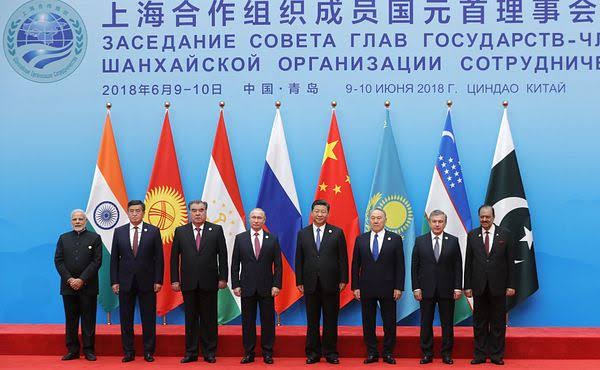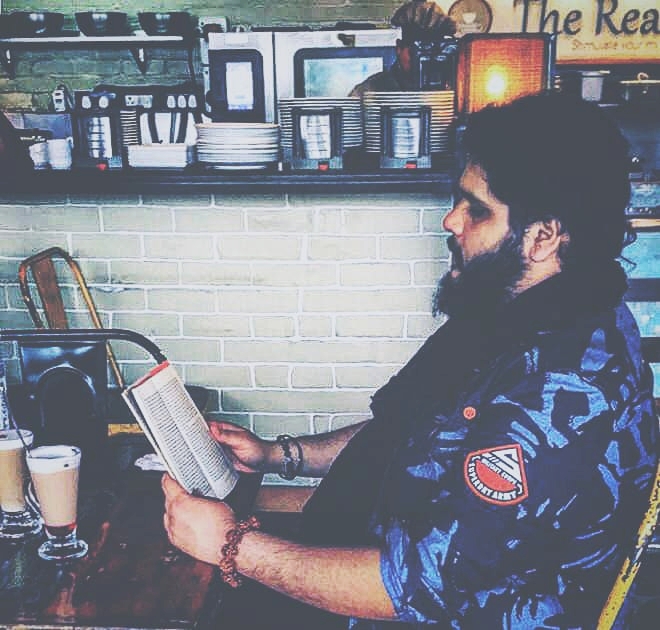
- From WHO to the UN, it was evident that the notion of international organizations and their ability to undermine violent events is slowly diminishing.
- The nations part of the SCO will always highlight that the sheer ignorance towards the global south is the reason why such an organization came up eventually.
- India is in an interesting situation. In the face of mediation and moderation by the west, India has carefully managed to sail its boat well with Russia and partially with China.
- India is also at a point where it has shown western organizations that it doesn’t wish to promote any unipolar or bipolar trends.
- India must be mindful of its perception in such organizations as it has to deal with a pair of suspicious eyes from both China and the US.
- SCO has the hallmarks of being a success that can make the west nervous as it has nations which are ambitious.
The Prime Minister is in Samarkand for the Shanghai Co-operation Organization ( SCO ). He will attend the full meeting tomorrow with all the member states. Prime Minister Modi will be conducting separate meetings with Russia, Iran, Uzbekistan and possibly, even China. It will be a short stay for him and he will be leaving tomorrow evening and reach India the day after tomorrow. It seems to be a short trip but it will be action-packed, filled with important diplomatic objectives to be fulfilled. As usual, the whole world will be watching this meeting with keen eyes as well as hawkish eyes gave how deeply complicated the world order is shaping into. The war in Ukraine has undergone a lot of changes with an apparent offensive from both sides. Sanctions remain in force with a renewed interest to put an oil cap on Russian oil. Despite the lack of success in that department, there is incredible zeal amongst the US-led NATO and its allies to keep trying and slogging through this history of change.
The world was already under the stress of a pandemic when the consequence of 2013’s political crisis in Ukraine was formulated into military action by Russia. A black Swan event thus had taken shape and now, we are watching and waiting as nations realign their positions to get the best bit of business for themselves. In a competitive world of nations and international organizations, there is a space for expecting such events at play. Be it India which is managing a balanced approach in this or be it China which has supported Russia through and through. Most nations have dawned upon the fact that the world will never be the same again. It was obviously evident when Russian foreign minister Lavrov expressed clarity on the usage of nuclear weapons for fulfilling Russian objectives that a new generation of diplomatic history is afoot. And this will be a standing testament for deciding whether we go for another war or not.
The role of international organizations took a credible hit when covid exploded in the world. From WHO to the UN, it was evident that the notion of international organizations and their ability to undermine violent events is slowly diminishing. The kind of competition that has come up with international organizations is another reason why we and everyone interested is watching this organization’s progress. This meeting will be significant since many leaders will be meeting each other face to face since Covid. Moreover, the US, which has always castigated any non-US or non- western organization will be watching for any loophole to exploit. Much like as international relations work, it’s a free market world out there. The most common complaint is that it has the potential to be an anti- western bloc. One can imagine since no major power from the west, the bloc is anti-American and anti-European in nature despite multiple statements around this question in contrary. Such apprehension is also there with India’s position as a nation which actively deals with the US and the west despite everything. Therefore, SCO certainly demands a lot in change for perception if it needs a wider acceptance in the world.
The role of international organizations took a credible hit when covid exploded in the world.
However, it’s entirely another matter that countries in the SCO care about perceptions now. It’s actually the opposite that has led to the formation of such organizations. Moreover, given the current situation that has occurred before this meeting, it’s very little to imagine that they have any inkling for pondering the need to cater to any perception issues the West and the US might have. And interestingly, that is actually their way to show the west, in their opinion, a mirror. But ultimately it again signals that the original point of having such organizations have drastically changed from some cooperation effort of the world to grandstanding against one another. The nations part of the SCO will always highlight that the sheer ignorance towards the global south is the reason why such an organization came up eventually. So arguments from any side have their own support bases. The nations primarily come from the Eurasian continent that stretches from Central Asia to parts of South Asia as well. Yet again, the three nations of China, India and Russia are the ones that have been paid the most attention to, and for the obvious reasons as well. The recent Ukraine- Russian crisis has shown that these three nations in the eyes of the west would more or less be completely non-committed to a US-led understanding of the global order. It’s not surprising that other organizations like the BRICS have them as well.
China will see Xi Jinping attend an actual international event for the first time since Covid came from Wuhan. Many had wondered whether he would be coming sooner than later but the organization which is most familiar to the Chinese is the venue he chose. Moreover, watching this is their largest trading partner, the USA. The Chinese have another problem in their backyard as there is mounting aggression from both the US and near Taiwan. After the visit of Nancy Pelosi to Taipei, the Chinese response has not been less than aggression towards this provocation from the Americans. They went on to declare the damage this has done to their ties with them. For their own good, the Chinese have signed a lot of trade deals with Russia, especially the push for the de-dollarisation of the world economy, the 30-year natural gas and the cheap import of oil. This has vastly improved their ties with Russia as well as helped both of them from potential economic shocks to come. Perhaps the best bit is the barter diplomatic objectives both the Russians and the Chinese follow, that is, mutual support in the Taiwan and Ukraine crisis respectively. Many see this as a smart and dangerous move against the US-led proto-alliance that is forming against them.

Furthermore, this empowers those like Iran and North Korea to flex their fingers in geopolitics as well. Assured support goes a long way as well when it comes to complicated aspects of international relations. The recent news of disengagement at the LAC with India has been associated with this as both heads of state can possibly meet at the sidelines of this summit. For those who cheer for China and keep viewing them in a favourable light in India, it’s a sign of the strength of the dragon and a weakness for India. One cannot dismiss that certainly the Chinese gained a lot from this optically but to call this a loss is an exaggeration in my opinion. The Chinese have faced a lot of flak and diplomatic furore since the beginning of 2020. When the Galwan incident happened, it was further strengthened as major nations came in support of India. Since then, things have improved for them as Russia chooses to view them as a reliable partner in the global scenario. Perhaps the Russians have had the opportunity to convey they have a stalemate with India as it shows maturity and helps in an optical gesture before the summit. Point to note that this will possibly be the first time the Indian Prime Minister will be meeting his Chinese counterpart after Galwan and other LAC-related issues. Time to see whether the Chinese managed to gain more substantially from this meeting. China needs to also balance its perception as even potentially favourable organizations like CPTPP view their economic policies with caution.
The recent news of disengagement at the LAC with India has been associated with this as both heads of state can possibly meet at the sidelines of this summit.
Russia has had its plate full. Not only the war has its major attention but the economic ramifications have its strategies on overdrive. So far, the Kremlin has made smart moves to not only have an abundance in forex reserves but has majorly stopped providing gas and oil to an antagonistic Europe, which is either forced or happy to reignite the phenomenon of Russia-phobia. Vladimir Putin has had to face a plethora of sanctions personally on him as well as assassination attempts. So far, the villain in the western eyes is the former KGB agent that, for the sake of sounding favourable, is merely doing what he had warned before. The problem of Ukraine shows the lack of interest the west showed towards a Russian request for non-intrusion near their borders. Even Henry Kissinger was critical of his own nation for this, but as times change, behaviour changes as well. One thing is for sure, the undeniable obsession of the west with dismantling Russia is here to stay. Such kind of difficult events motivates Russia to use an organization like SCO to not only provide an alternative to western driven organizations but to leverage and maintain its presence in the areas covered under such organizations. Much like BRICS, Russia enjoys fruitful ties with both China and India. The latter is often considered one of the closest allies of all time. The clarion call has now strengthened to have an alternative alliance against the West. The Russians have led this since the beginning of this year. Nations like Iran and China have supported this call as well. So far, the success of the Russian military operations despite some alleged setbacks recently does not take away the fact that their position has now increased in the space of influence. The objective is clear, Russia is now bolstering its allies, changing its partners and making a powerful alliance against what they call as the unipolar supported bloc. It has gathered support to include Iran in the SCO as well. It’s a massive win for its objectives. The push as many experts believe is to be an “anti-western bloc”. What remains to be seen is how tomorrow’s major meeting pans out.

India is in an interesting situation. In the face of mediation and moderation by the west, India has carefully managed to sail its boat well with Russia and partially with China. It will become the chairman for the next year and therein lies the success for them. Their post was supported by both Russia and China. India would largely aim to discuss regional, international and possibly terrorism-related topics at the summit. One can expect the Prime Minister to start off on this note only. Another aspect is the continuous diplomatic pressure put on India by the West. But at the same time, India has also kept its allies like France in the loop. Prior to the SCO, both India and France had an important bilateral meeting on Indo-pacific as well as Australia and UAE respectively. France has shared the Indian preoccupation with China while maintaining India’s need to have close ties with Russia. So the Indian side plays the card of a multipolar world well. Not only it gains progress in non-US-led organizations but also manages to keep its ties with Europe in its own interest. If we carefully observe this, it’s difficult to do this and one often also complains about India’s attempt to have a hand in each pie. Eventually, it will have to decide which side it goes. But those who support their diplomacy claim the importance of a balance which is not reminiscent of a “non-alignment” but more so, to promote multiple voices in the world. India has gained from the disengagement at the LAC as well as supported Iran’s entry into the SCO. The point to note here is the news which showed full access to the Chabhaar port happened right before this summit as well as the news about a possible meeting with the Chinese and Pakistani heads of state, it’s clear that India has also positioned itself for the annual meeting next year.
The problem of Ukraine shows the lack of interest the west showed towards a Russian request for non-intrusion near their borders.
While we still have a lot of outstanding issues to solve with both Pakistan and China, one thing is for sure the maturity of the Indian side has grown a lot, especially during the years of the pandemic. It’s not always been perfect but it’s certainly entering the phase of robust motion in the desired direction. India must be mindful of its perception in such organizations as it has to deal with a pair of suspicious eyes from both China and the US. What remains to be seen is how tomorrow’s summit shapes India’s potential as an alternative method to follow as compared to the duality that seems to creep its way in many forms. India is also at a point where it has shown to western organizations that it doesn’t wish to promote any unipolar or bipolar trends but rather to have a multipolar approach for more cohesiveness and interactions by those nations, often overlooked in this game of international relations. Furthermore, this helps them gain decent access to certain nations in and around their continent as well as other prominent places as well.
Finally, as I conclude, I perhaps feel that the SCO has the hallmarks of being a success that can make the west nervous. It has nations which are ambitious, sometimes too much that they also have border issues with each other (Kyrgyzstan and Tajikistan, China and Russia, India and Pakistan and China) but can have the ability to maintain ties simultaneously. This is something the west wants to evaluate and perhaps try to replicate as well. But it also has the potential to turn into a China-centric organization as feared by many which is a deal breaker for India. Nevertheless, there is a possibility that all things considered, tomorrow’s meeting can usher in a new direction in a multipolar world. Or it will further narrow it into a depressing nutshell.
(Anhad is a Post-graduate scholar in international relations. He is now pursuing his PhD in Defence and Strategic Studies. He has an undergraduate degree in history. He is a columnist for many portals and is a keen public speaker in debates and discussions. Views expressed are the author’s own)

